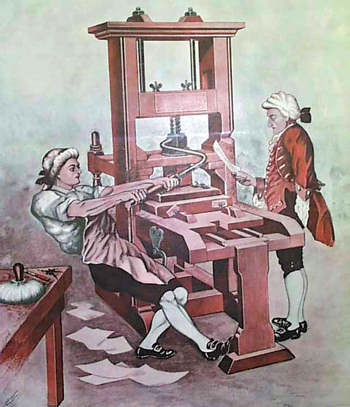|
Adjusting To The New Day
I don't know any other way to describe it. A miracle. And it left me in wonder and awe. Anita and I were making the six-hour trip to see our eldest daughter, Amy, and her family. Anita was driving because … well, she likes the idea of getting there in one piece. Go figure. Just as we left our home a news story broke within the beat that I've been assigned to cover as a newspaper reporter. Back in the day, that would have meant driving into the office, where Anita would have cooled her heels while I reported and wrote the story. Now, my lovely wife has a great many fine traits and characteristics, but heel cooling is not among them – especially not when there is a schedule to be kept. But in this case, on this day in this amazing technological era, heel cooling was not required. Instead, I sprawled out in the back seat of the car with my lap top computer, my cell phone and a portable Internet hot spot. As Anita drove toward our daughter’s home, I spoke to sources, gathered information from the Internet, wrote my story, submitted it to my editors, dealt with a few picky comments … er, editorial suggestions, attached photos to the story and submitted it for publication. By the time we got to our first gasoline stop, my story was already in the online version of the newspaper, and readers were starting to comment on it. Never mind that the comments were mostly of the "this writer is an idiot" variety. The miracle wasn't that I wrote a great news story – some things are even beyond the reach of God. The miracle was in the technology that allowed me to report, write, edit and post a news story from the back seat of my car while on a family outing. I may never go into the office again. When I first started in the newspaper business, of course, such a thing was unheard of. In those days, we were excited to have electric typewriters instead of the old manuals. When you finished a story, you ripped it out of your typewriter and noted any errors using special copy editing symbols that were the required language of the trade. If you were on a tight deadline, you held your story up and yelled, "Copy!" One of the copy boys would literally run to you, take your typed story and run it up to the city editor's desk, where he would mark up your paper with his edits and growl about hiring fools and idiots. Then he would send the copy boy running with your story to the copy-editing desk. When they were through with their edit of the story and writing the headline, they would roll it up like a paper towel roll and put it in a pneumatic tube and send it down to the printing area where the story would be typeset, plated and printed. Today, all of that happens with the push of a button or two – including the "fools and idiots" part, I'm sure, except I can't hear it from the backseat of my car. Thankfully. Of course, there are downsides to the miracles of modern technology. The same digitalization that makes my miracle possible is, according to some prognosticators, making the printed newspaper obsolete. Newspapers everywhere are struggling to find their place in an online world. The copy boys are already gone. So is the copy desk. The newsroom that once employed 120 people now only has enough jobs for 45 – and a lot of them are computer wizards who would be more at home at Hogwarts than in an olde tyme newsroom. Most of my colleagues here are so young, if I yelled "Copy!" they would think I'm accusing them of plagiarism. It's a new day here in the newsroom – for good and for ill. I suspect the same is true for you, wherever you are. Things change. Tools change. Resources change. Priorities change. People change. Whether we think those changes are miracles or not almost doesn't matter. Change happens, and it’s up to us to adjust. Our ability to adapt to change – embrace the new, release the old – will determine, to a great degree, our ability to find happiness and peace in life. And to fully appreciate those miracles. <ValueSpeak@msn.com> Copyright © 2012 |



